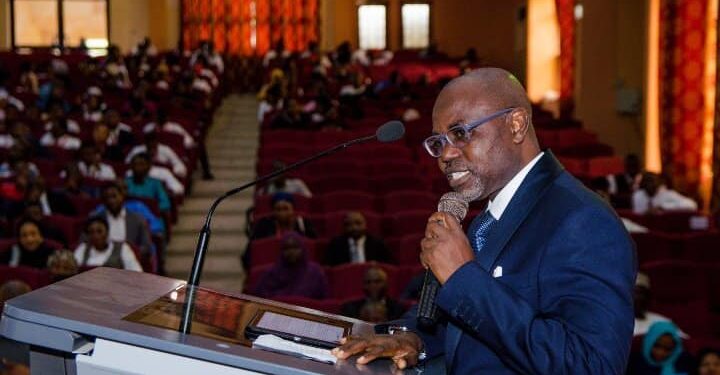The Vice Chancellor of the University of Ilorin, Prof. Wahab Egbewole, SAN, has raised concerns regarding the recent surge in electricity tariffs enforced by the Ibadan Electricity Distribution Company, significantly impacting the university’s financial planning.
In a communication addressed to both staff and students last Thursday (June 6, 2024), Egbewole revealed that the institution’s monthly electricity expenses have surged from N70 million to N230 million, a development he deemed “unsustainable.”
Expressing the pressing need for a thorough review of current electricity consumption patterns, Egbewole urged the university community to adopt more prudent energy usage practices and collaborate with the administration in implementing cost-saving initiatives.
The Professor of International Law and Jurisprudence disclosed ongoing negotiations for alternative power supply options, anticipating favorable outcomes in the near future.
To mitigate dependence on conventional electricity sources, Egbewole disclosed plans to incorporate provisions for alternative power solutions in new construction projects within various faculties. Additionally, efforts are underway to equip all faculties and units with reliable alternative energy sources.
Acknowledging the community’s resilience amidst recent disruptions in electricity and water supply, the Vice Chancellor expressed gratitude for the solidarity shown during challenging times. He emphasized the importance of safeguarding university resources from theft and vandalism, urging collective responsibility in their preservation and upkeep.
While reaffirming the administration’s commitment to navigating economic challenges, Egbewole assured continued efforts to maintain an enabling learning and working environment despite financial constraints.
Recall that the Nigeria Electricity Regulatory Commission announced a significant tariff increase for Band A customers on April 3, resulting in a 240% rise from the previous rate. This adjustment, which withdrew electricity subsidies for Band A customers, was aimed at saving government expenditure to the tune of N1.5 trillion.
























